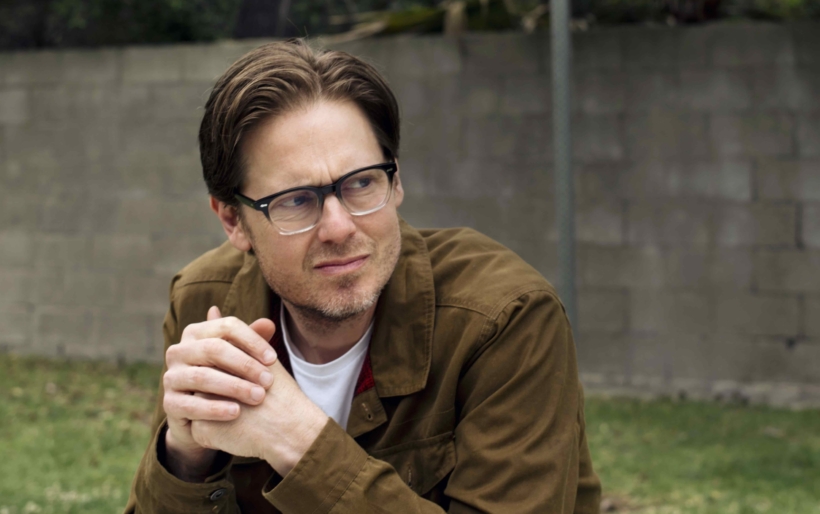Sean Fennell: You’ve been a touring performer for most of your life at this point. I’m curious how different it is touring as part of a band as opposed to doing stand-up or even smaller comedy shows?
Tim Heidecker: There are significant differences. Obviously, there is a setlist of songs that get pretty locked in, but that could be true of comedy sketches or a stand-up set. But I find that every night I’m playing the set, I am adding new endings or in-between jokes. Just fun little moments that are keeping me and the band on our toes, and hopefully keeping the audience engaged. So it’s not just about us coming out and plodding through 12 songs, it’s more of a hang where things can constantly change, more of an open conversation that keeps me enjoying doing the show every night.
SF: You noted that this part of the tour feels like the end of the beginning. Are you and the band starting to really get in a groove?
TH: The band is super professional. They pick stuff up really quick. Even after the second rehearsal, it was clear everyone knew what to play. Now it is more about the flow of the show and what new songs we want to swap out, how we might want to reorder things. That took place the first couple of nights and now its more locked-in to a place where we can continue to fuck around. We just added a new coda to the opening song, “Well’s Running Dry”, that’s basically just The Beatles’ song “Don’t Pass Me By.” I just threw that together in the sound check and it was fun so, you know, that will probably stay in there now. I always feel like it takes a good week of being on the road to feel like all the nerves have shaken off and you get a better sense of what’s working and what’s not and just the overall flow of the thing. I think we are pretty much there.

Tim Heidecker | photo by Paige Walter for WXPN
SF: I know you haven’t lived in the area for quite a while, but having grown up in Pennsylvania and gone to Temple University, does this still feel like a hometown show?
TH: Yeah, definitely. I have a few friends who are still there. I don’t necessarily expect family there. Most of my family has moved away but Eric (Warheim) and I have always felt good coming back and the people seem to appreciate our strong connection to the city, especially the Temple connection.
SF: Were you someone who came into Philly a lot when you were younger for shows?
TH: Before I went to Temple, I didn’t go to Philly very often. Maybe once a year. Allentown, where I grew up, is equidistant from NYC to Philly, so we kind of split between those cities. We would have the New York stations and the Philly stations, but we were definitely a Philly sports team family. We went to Flyers games a couple times a year. I didn’t really go to shows outside of Allentown until I was in college. When I did get to college, though, I saw a bunch of great shows. I went to The Trocadero a lot and saw all the great ‘90s Matador bands…Pavement, John Spencer Blues Explosion.
SF: Is this around the same time you were starting to form your own bands?
TH: I had a couple of bands in high school. Some embarrassing hippie, little jam-bandy stuff with a bit of humor to it too, so not too far disconnected from where I ended up. Then when I went to college, Eric was really into the emo, hardcore scene which was very big in Philadelphia. There were a lot of Church shows and basement shows and house shows. I was kind of on the outer perimeter of that. I was in one of Eric’s bands for a little bit in college just sort of for fun, but I knew all the hardcore emo guys in our little clique.
SF: Did you always imagine you’d return to music, even if not to the degree where you are very much a touring musician?
TH: I really did put it away as an ambition once the comedy stuff took off. I felt much stronger doing what I was doing with Eric and doing comedy. That was really the first ten years of my professional life. That said, the music was always there, because there was always a need for songs. There were always sketch ideas, commercial ideas, or music parodies that required catchy, well-produced songs. So all the way through Tom Goes to the Mayor and Tim and Eric Awesome Show, Great Job! that became sort of my department on the show, to write or co-write those songs and then work with our music producer to get them to sound right. So I feel like I have been making music this whole time, it’s just now the songs themselves are a little less satirical and ironic.

